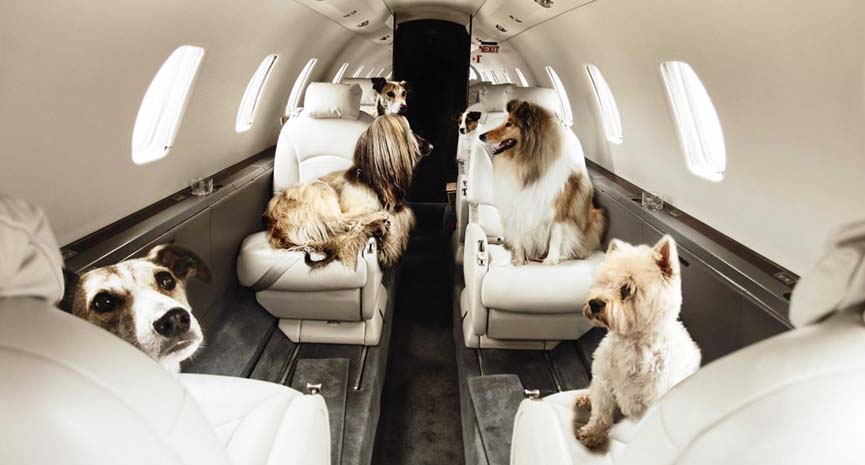Horror stories about pets flying in the cargo hold tend to travel quickly. Jack the cat made news when he escaped his crate and spent 61 days lost in JFK airport. Jack escaped when an American Airlines clerk stacked his kennel on another kennel and it fell, opening on impact. The cat had to be euthanized because of malnourishment and dehydration.
Mary Beth Melchior founded the group Where is Jack? after Jack, was lost in 2011. Melchior’s group now works to improve conditions for animals on planes.s to improve conditions for animals on planes.
“Airlines are supposed to self-report, but they have no incentive to do it,” Melchior said. “The problem is there is no one on the ground to enforce these regulations.”
A sobering reminder that flying pets in the cargo hold can be a risky proposition – even when owners take proper precautions. Fortunately, the Department of Transportation instituted rule changes that gives pet owners more detailed information about an airlines’ track record.
Airlines only have to report when an animal is lost, injured or dies in transit if it is classified as a pet. Animals shipped by a breeder don’t qualify. Nor do research animals. But that changed under U.S. Department of Transportation rules starting Jan. 1, 2015. Airlines must now file reports for lost or hurt animals that are being shipped commercially, such as by a breeder. “This rule will provide consumers with a fuller picture of an airline’s safety record when it comes to transporting animals,” said department spokeswoman Caitlin Harvey. The new rules apply to any airline with a plane that holds more than 60 passengers – that expands the number of airlines that must file reports to 27. The old rules covered just the 15 biggest airlines.
Airlines have filed an average of 53 reports annually since 2010 that have covered incidents such as animals escaping from kennels, dogs and cats with hurt paws, and deaths. When an animal dies in transit, the airline often refunds the pet transport fee. The owner has the option of ordering a necropsy at the expense of the airline.
American Airlines estimated that the airline transports over 100,000 pets annually. United Airlines ships about 120,000. But animal rights groups are wary of the airlines’ figures. A 2008 study by the American Association of Laboratory Animal Science found that cargo hold temperatures shift by 50 degrees or more during most flights. On half the flights studied, the hold reached 85 degrees – far hotter than the passenger cabin – and 15 percent of the time, the hold dipped to a chilly 45 degrees.





